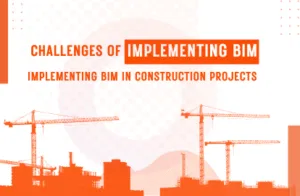Choosing the right BIM services provider can make a huge difference for your project. A BIM Engineering & Consulting Company does more than create models. They help plan, coordinate, and deliver projects faster and with fewer errors. But not all BIM companies work the same.

Some focus on design, some on construction, and some offer complete end-to-end solutions. Picking the wrong partner can cause delays, cost overruns, and frustration. You want a company that understands your project needs, works with your team, and delivers reliable results.
This guide will help you spot the right BIM provider. We will talk about how to check expertise, software knowledge, quality standards, and communication.By the end, you will know how to make a confident choice for your project. Think of this as your roadmap to finding a partner who makes BIM work for you. So, Let’s get started.
Understanding BIM Services
Before picking a BIM company, it helps to know what BIM services actually do. A good provider offers much more than 3D models. BIM Modeling turns your design into a detailed digital model. BIM Integration connects different teams, software, and data so everyone works together smoothly. Drawings and Documentation services provide clear plans and reports that make construction easier and reduce mistakes.
Some companies also offer clash detection, cost estimation, and project scheduling. Others help with facility management after construction finishes. Knowing these services helps you choose a company that fits your project needs. Not every provider offers all services, so check carefully.The right BIM partner can handle your project from start to finish or support specific stages. By understanding what each service does, you can make a choice that saves time, reduces errors, and keeps your project on track.
Read More :Everything You Need to Know About BIMChallenges in Finding the Right BIM Company
Finding the right BIM company is not always easy. Many projects fail or face delays because the chosen partner does not fit the project needs. Knowing the common challenges can help you avoid mistakes and pick a reliable partner.
Lack of Standard Qualifications
Not all BIM companies follow the same standards or certifications. This makes it hard to compare expertise and reliability.
Limited Experience in Your Project Type
Some companies specialize in residential projects, while others focus on infrastructure or MEP. Choosing a company without the right experience can lead to errors and delays.
Software Compatibility Issues
BIM relies on software like Revit, ArchiCAD, or Tekla. If your provider cannot work with your tools, collaboration becomes difficult and data may be lost.
Communication and Coordination Gaps
Remote teams or multi-disciplinary projects can create miscommunication. Poor coordination leads to mistakes and extra costs.
Overemphasis on Cost
Many companies compete on price, but the cheapest option may not deliver quality. Low-quality BIM work can cause rework and project overruns.
Limited Scalability
Some BIM companies cannot handle large or multi-phase projects. If your project grows, they may struggle to keep up.
How to Choose a BIM Company
Choosing the right BIM company is one of the most important steps for any construction or design project. The right partner can save time, reduce errors, and improve collaboration across all teams. But with so many options in the market, it can feel overwhelming. Here’s a simple guide to help you make the right choice.
Define Your Project Needs
Start by understanding your project goals clearly. Decide whether you need BIM for modeling, coordination, clash detection, cost estimation, or full project management. Knowing your requirements helps you shortlist companies that specialize in the services you need.
Check Experience and Expertise
Look for companies with proven experience in projects similar to yours. Whether it is residential, commercial, industrial, or infrastructure, experience matters. Ask for case studies or project portfolios to see the quality of their work. Companies that understand your sector will anticipate challenges better.
Evaluate Software Skills
BIM relies heavily on software. Ensure the company works with tools compatible with your workflow, such as Revit, ArchiCAD, Navisworks, or Tekla. The ability to use multiple platforms and integrate with your existing systems reduces delays and ensures smooth collaboration.
Assess Quality and Standards Compliance
A professional BIM company should follow industry standards like ISO 19650, PAS 1192, or COBie. This ensures consistency, accuracy, and proper documentation. Adherence to standards also allows multiple teams to work together without errors or data loss.
Review Communication and Collaboration Practices
Strong communication is key. Ask how the company handles coordination, reporting, and updates. Remote teams or large projects can create gaps, so choose a partner that provides clear timelines, regular progress updates, and responsive support.
Look for Scalability and Flexibility
Your project may grow or change over time. Pick a company that can scale its resources and adapt to evolving requirements. Flexibility in services allows the company to support different stages of your project effectively.
Consider Cost vs. Value
While cost matters, it should not be the only deciding factor. Focus on the value the company brings through accuracy, efficiency, and reliable delivery. Transparent pricing with clear deliverables ensures no hidden surprises.
Check Post-Project Support
Projects don’t end with construction. You may need updates, maintenance, or model revisions later. A reliable BIM company offers ongoing support, making it easier to manage your building in the long run.
Choosing the right BIM company requires careful research and thoughtful evaluation. By focusing on project needs, experience, software skills, communication, and long-term support, you can find a partner that enhances your project’s success.
Take time to ask questions, review portfolios, and even run a small pilot project if possible. A good BIM company becomes more than a service provider-they become a trusted partner who makes your project smoother, faster, and more efficient.

Mistakes to Avoid When Choosing a BIM Company
Choosing a BIM company can be tricky, and even small mistakes can lead to delays, extra costs, or poor-quality results. Knowing what to avoid helps you make a smarter decision and ensures your project stays on track.
Choosing Based on Price Alone
It’s tempting to pick the cheapest option, but low cost often means lower quality. A BIM company may cut corners or lack experienced staff, leading to mistakes that cost more later.
Ignoring Software Compatibility
BIM relies heavily on software tools. Selecting a company without checking their software compatibility can cause collaboration issues, data loss, or delays in project delivery. Always ensure their tools match your workflow.
Overlooking Communication and Coordination
Poor communication can cause misunderstandings, missed deadlines, or errors in the model. Avoid companies that don’t provide clear updates, transparent reporting, or easy coordination with your team.
Skipping References and Portfolio Checks
Not verifying past work or client reviews is risky. Always ask for case studies, project portfolios, and references to confirm the company’s experience, reliability, and ability to deliver on time.
Avoiding these mistakes helps you find a BIM partner who meets your needs, works efficiently with your team, and delivers high-quality results. Careful evaluation now prevents problems later and makes your project smoother, faster, and more predictable.
Where to Find Potential BIM Companies
Finding the right BIM company starts with knowing where to look. With so many providers available, knowing the best sources saves time and helps you find a reliable partner. Here are some ways to discover potential BIM companies.
Online Directories and Review Platforms
Platforms like Clutch, GoodFirms, and LinkedIn list verified BIM companies with reviews and ratings. You can compare portfolios, client feedback, and services offered. These platforms give a clear picture of company reputation and past performance.
Industry Events, Conferences, and Webinars
Attending BIM-focused conferences, expos, or webinars connects you directly with experts. These events showcase the latest trends and allow you to meet providers face-to-face or virtually. It’s also a great way to assess their professionalism and expertise.
Referrals from Architects, Contractors, and Developers
Your professional network is a valuable resource. Ask architects, engineers, or developers for recommendations. Referrals often lead to trusted companies with proven track records, saving you the effort of vetting unknown providers.
Professional BIM Associations and Networks
Joining BIM associations or online professional groups helps you connect with certified companies. These networks often list members with verified skills and adherence to industry standards, ensuring you choose a qualified provider.
By using these sources, you can create a shortlist of BIM companies that match your project needs. Combining online research, professional networking, and industry events ensures you find reliable partners with the right expertise.
Is Next Synergy Solutions the Right BIM Company for You?
At Next Synergy Solutions, we understand that choosing the right BIM partner can make or break a project. That’s why we focus on delivering precise, reliable, and tailored BIM services to each client.
With over 15+ years of experience in the industry, we have honed our skills and processes to meet the needs of diverse projects, from residential and commercial to complex infrastructure developments. Choosing us means choosing a partner who values your project as much as you do.
Here’s why we stand out:
- Successful Projects: 300+ completed with high client satisfaction
- Years in Business: 15+ years of experience in BIM services
- Happy Clients: 100+ clients across multiple industries
- Countries Served: 15+ countries with diverse projects
- BIM Experts: 50+ skilled professionals on our team
- Known for customized solutions and a client-centric approach
- Provides dedicated teams for each project
- Offers post-development support and maintenance
We take pride in combining technical expertise, innovative solutions, and personalized service. When you choose Next Synergy Solutions, you’re choosing a partner committed to making your project efficient, accurate, and successful from planning to execution and beyond.
Conclusion
Choosing the right BIM services provider is a crucial step for any construction or design project. The right partner can save time, reduce errors, and make collaboration across teams much smoother. By understanding the services offered, knowing the challenges to watch out for, and evaluating companies carefully, you can make a decision that benefits your project from start to finish.
Remember, your BIM partner is not just a service provider – they are a teammate. Picking the right company now saves you time, reduces risk, and ensures your project runs smoothly. Make a thoughtful choice and set your project up for success.

Frequently asked questions
What services should a reliable BIM provider offer?
A good BIM provider should offer modeling, integration, clash detection, documentation, scheduling, and post-project support. The exact services depend on your project needs.
How do I check a BIM company’s experience?
Look at their past projects, client testimonials, and portfolios. Experience in your project type, like residential, commercial, or infrastructure, is especially important.
Why is software compatibility important in BIM?
BIM relies on tools like Revit, ArchiCAD, Navisworks, and Tekla. Using compatible software ensures smooth collaboration, reduces errors, and avoids delays.
Should I consider cost first when choosing a BIM provider?
No. While cost matters, quality, expertise, and reliability are more important. Choosing based on price alone can lead to errors and project overruns.
How can I assess a company’s communication and collaboration skills?
Ask about their reporting methods, coordination workflow, and project updates. Clear, timely communication prevents misunderstandings and ensures smooth project delivery.
Is post-project support necessary?
Yes. BIM models may require updates or maintenance after construction. A provider that offers ongoing support ensures your building information stays accurate.
A good BIM provider should offer modeling, integration, clash detection, documentation, scheduling, and post-project support. The exact services depend on your project needs.
Look at their past projects, client testimonials, and portfolios. Experience in your project type, like residential, commercial, or infrastructure, is especially important.
BIM relies on tools like Revit, ArchiCAD, Navisworks, and Tekla. Using compatible software ensures smooth collaboration, reduces errors, and avoids delays.
No. While cost matters, quality, expertise, and reliability are more important. Choosing based on price alone can lead to errors and project overruns.
Ask about their reporting methods, coordination workflow, and project updates. Clear, timely communication prevents misunderstandings and ensures smooth project delivery.
Yes. BIM models may require updates or maintenance after construction. A provider that offers ongoing support ensures your building information stays accurate.






